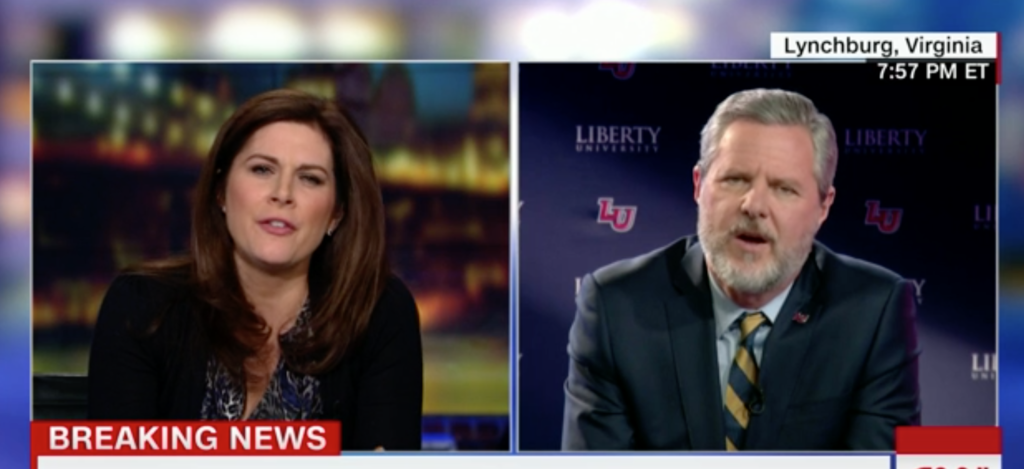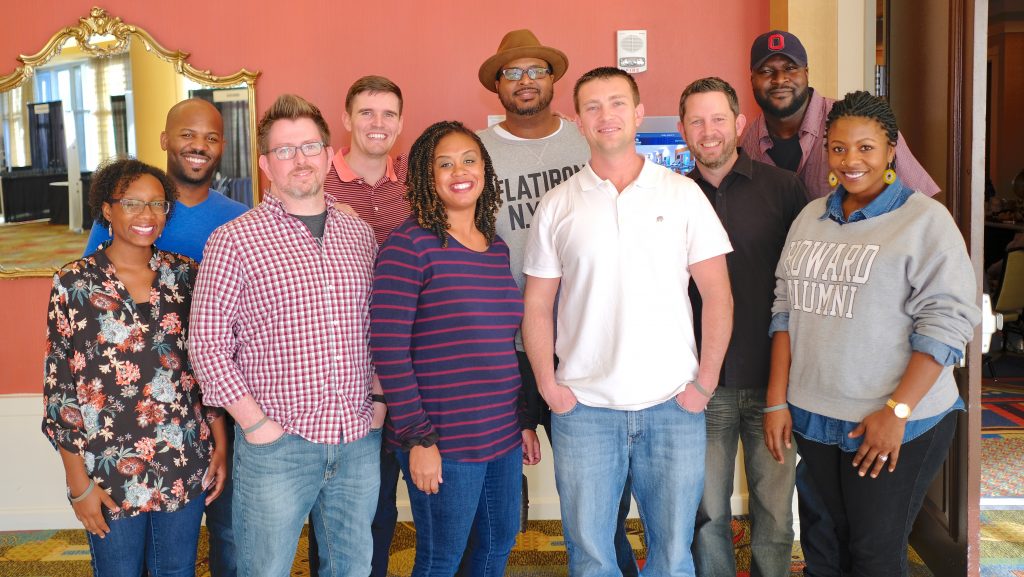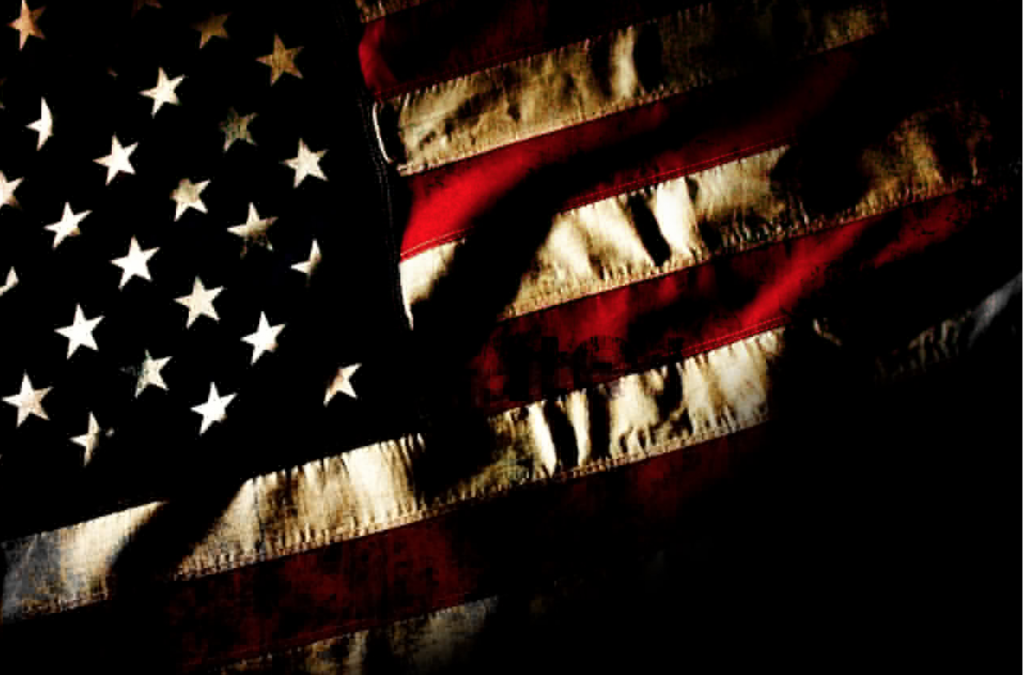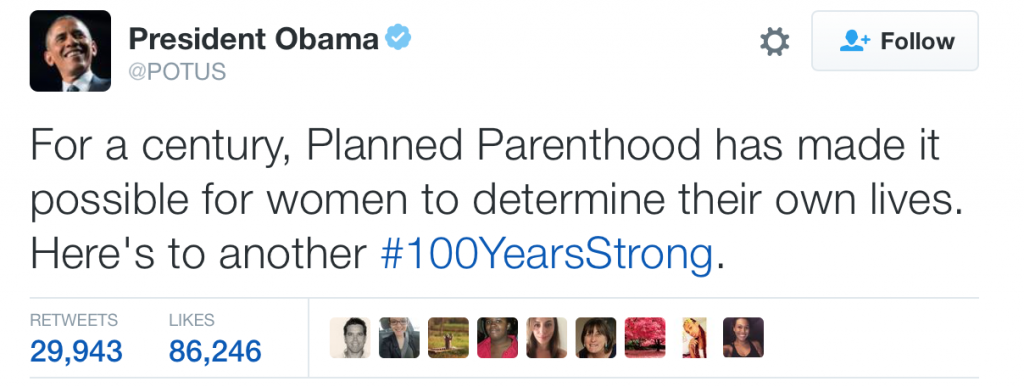Was Jesus a Liberal or Conservative?
These are notes from talks given at the U.S. Capitol, Georgetown Law, George Washington University, and most recently Georgetown University.
As we begin, I want to say that I’m not a political expert. I am a Christian pastor. This is important because I want to be very clear that my main intent tonight is not to move you to the left or right in your political convictions. My aim is to help all of us grow in our understanding of who Jesus is. In fact, I propose that what we think about Jesus and how we respond to Him is infinitely more important than our political convictions—though they aren’t unrelated.
Also, if I wrongly represent someone’s political views, please know that’s not my intent. None of us like to be pigeonholed and we all know there’s a vast spectrum between the right and the left. My aim is to be fair in this discussion, so I’ll ask you to be gracious as well. This, I hope, is the beginning of a conversation that could last for the rest of our lives. I desire to grow in my understanding of these topics, and I trust you do as well. We’ll have time at the end for Q & A, so please feel free to take notes and we’ll process together after the talk.
When it comes to politics, religion, or pop culture, Jesus is the kind of guy people like to be associated with. Whether it’s Justin Beiber giving Jesus a shout out at the VMAs or Duck Dynasty guys quoting Jesus in the woods or politicians doing commercials about their thankfulness for “the evangelicals”—people like to have Jesus on their side.
Some political or social liberals, suggest that if Jesus were on the earth today, He’d be dressed in denim work clothes, teaching and modeling equality, inclusion, and tolerance. After all, He’s the One who said we should “turn the other cheek” (Mt. 5:38) and “judge not lest you be judged” (Mt. 7:1-5). They suggest that because Jesus healed the sick (Mt. 12:15) and taught us to help “the least of these” (Mt. 25:40) that He’ call for free universal healthcare. They say that if He were here today He’d propose higher taxes on the rich so the poor could follow their dreams (Mt.19:21).
At the same time, some political or social conservatives have long claimed to be the ones who really know Jesus. They maintain that if He lived today, He’d be at their rallies giving orders to flip the tables of Planned Parenthood (Mt. 21:12) and calling for the government to quit oppressing people’s morality and pocketbooks. He’d be speaking out about border control (Mt. 10:5) and traditional marriage (Mt. 19:1-6) and the rights of the unborn (Mk. 12:31).
These camps often oppose each other; and both think they are right. A CNN article titled Do you believe in a Red State Jesus or a Blue State Jesus?, rightly said that after the election “somebody somewhere in America will fall on their knees and pray, ‘Thank you Jesus.’ And somebody somewhere else will moan, ‘Help us Jesus.’”
So what do you think? Would Jesus be red or blue? Would He be setting up a soup kitchen or shouting at the religious hypocrites? Was Jesus a liberal or a conservative?
To help us answer this, we’ll spend the rest of our time exploring three topics that Jesus taught about which are relevant in political discussions today. We’ll consider what Jesus taught about taxes, what He taught about the rich and the poor, and what He taught about human flourishing.
#1 – What did Jesus teach about Taxes?
In the Gospel of Matthew 22:15-22, Jesus was confronted by the Pharisees (religious conservatives of His day) about whether or not people should pay taxes to Caesar, the Roman emperor. Jesus asked them to bring him a coin and asked, “whose [inscription] is on it?” They said “Caesar,” to which Jesus famously replied “render to Caesar the things that are Caesar’s and render to God the things that are God’s.”
What He meant by that is, because Caesar is King give him what is due him, namely taxes. Now, when Jesus says pay your taxes, He’s not talking about giving money to a government that you might fear will squander it. Rather, He’s talking about giving money to one of the most cruel and perverse government systems in the history of the world. Rome was ruthlessly oppressive to everyone under their authority.
Why would Jesus say to pay taxes to them? Because Jesus recognized government is a God-ordained institution set up to maintain order and uphold justice and righteousness in a fallen world (Gen. 9:6). Every government, good or bad, is part of God’s design, and we are to honor God by paying the taxes they require (Rom 13:1-7).
Would Jesus increase taxes on the rich or decrease taxes on the middle-class? Liberals and conservatives have their opinions, but Jesus doesn’t say. But He does say give to Cesar what is Cesar’s—and give to God what is God’s.
And here we see the masterfulness of Jesus’ teachings. He never avoided relevant social topics, but He used those discussions to point us in a different direction. While He speaks to the crowd about honoring the government, He teaches them about honoring God. God created each of us and we owe Him our love, obedience, and worship. Jesus’ teaching on taxes ultimately points us to our need to give to God the worship and obedience that He deserves from us. Jesus challenged both liberals and conservatives give honor to whom honor is due, supremely God.
#2 – What did Jesus teach about the Rich and the Poor.
Jesus was known for His remarkable compassion toward the poor and oppressed. At the same time, He fearlessly ministered among the wealthy and powerful. And we can learn from His interactions with both groups.
In the Gospel of John ch. 5 we find Jesus making a stop by a pool in Jerusalem. This wasn’t a pool like you’d find at the Marriott, instead, this pool was a hangout for the marginalized who were blind, paralyzed, and poor.
In the story, Jesus walked over to a lame man and asked, “do you want to be healed?” The man replied that he had no one to help him, to which Jesus responded by telling him to take up his mat and walk. And the man, who had been crippled for 38 years, stood up and walked. Jesus healed him. Let’s make three observations about this story.
First, Jesus was aware of this man’s distress. This pool wasn’t in a part of town most of religious or political leaders frequented. But Jesus was there. He sought out this man and used His power to do alleviate this man’s physical distress. This kind of practical, compassionate love for broken people characterized everything Jesus did.
Second, Jesus didn’t heal everyone at the pool. Many left that day no different than when they arrived. Could Jesus have healed them all? Yes. Then why didn’t He? We don’t know. Jesus regularly left places where people needed to be healed to minister elsewhere. Was He being cruel? No, that would miss the point. Jesus’ miracles certainly aimed to help people, but they had a deeper meaning—to prove He was God’s Son who had the authority to forgive sins.
Third, Jesus taught the formerly lame man about his greatest need. “Afterward Jesus found him in the temple and said to him, ‘See, you are well! Sin no more, that nothing worse may happen to you.’” Jesus called this man to rightly consider his needs. His greatest need wasn’t a healed body, but the forgivness of his sin. Unless he repented, the physical relief he received that day would be of little consolation on the Day of Judgment.
Jesus cared about the poor and He calls His followers to do the same (Lk. 14:12-14). But physical help was given along with spiritual help. Jesus cared about relieving people’s physical suffering, but even more so He cared about relieving the eternal suffering they would face apart from His grace. And this lesson wasn’t just for the poor.
In Matthew 19:21, Jesus speaks to a man known as a rich young ruler (this guy is everything we all desire to be. He’s rich, young, powerful.). He said to him, “If you would be perfect, go, sell what you possess and give to the poor, and you will have treasure in heaven; and come, follow me.”
Jesus knew this man’s heart and was keenly aware that this rich man loved his money more than God. So, Jesus told him that if was going to follow Him, he needed to surrender his love for material things so that he could see gain the things of eternity. In essence, Jesus had the same message for the rich man as He did for the poor man: allow your physical situation to awaken you to the reality that a final day of judgment is coming.
Does Jesus teach that we should help the poor and relieve their suffering? Yes! We should be generous with what we have. But as we see in our second example, Jesus challenged both the rich and the poor to not value physical or financial security at the cost of forgetting that having their sins forgiven by Jesus is our greatest need.
#3 – What did Jesus teach about human flourishing?
Our desire for fullness of life is at the heart of our culture’s conversations about the plight of fleeing refugees, the rights of women and the rights of unborn children in their womb. It is behind the call for marriage equality, and the cries for healing the racial brokenness all around us.
When politicians and educators address this topic, the focus is often on economic development, or opportunity equality, or maybe personal autonomy that gives us the right to do whatever we want without anyone telling us we are wrong. But what would Jesus say about human flourishing?
As with just about everything, Jesus came at the topic in a way we wouldn’t expect. Jesus knows all of these felt needs, but does not see them first as physical issues, but as spiritual ones. Jesus taught that true human flourishing is impossible apart from a relationship with Him. Why? Because each of us, regardless of our political leanings or cultural upbringings, are naturally alienated from God in our sin. But this is what Jesus came to save us from.
Listen to just a few of His words. In John 10:10 He said “the thief [devil] comes only to steal and kill and destroy. I came that they may have life and have it abundantly.” Then later in John 15:10–11 He said, “If you keep My commandments, you will abide in My love…These things I have spoken to you, that My joy may be in you, and that your joy may be full.” Abundant life. Full joy. It is only through Jesus that we understand true human flourishing.
In Mark 8:34–35 Jesus made this even more clear, “calling the crowd to Him with His disciples, He said to them, “If anyone would come after Me, let him deny himself and take up his cross and follow Me. For whoever would save his life will lose it, but whoever loses his life for My sake and the gospel’s will save it.”
What Jesus is saying is that the quest for human flourishing, and everything else in life, must be understood and submitted to His Lordship. Human flourishing is not “I get to do what I want to do,” but rather that we get to find joy, find life, find abundant life in being freed from our sin and rightly related to God and to other people.
The way we relate to each other does not begin with our own opinions or own desires. Rather, Jesus says that it must be filtered through and submitted to His Lordship. Jesus is King and because of that, all His people surrender their agendas at the door. In our church we have some who will vote for Hillary, some who will vote for Trump, some who will write-in, and some who won’t vote at all. Among them, there are obviously political differences, but they love each other, and show honor toward each other. This was the same among Jesus’ disciples in His day.
It’s safe to assume that Simon (the zealot) and Matthew (the tax collector) had different political views. Both were called to follow Jesus, and both faithfully did so. How does that happen? Because Jesus’ followers know He is greater than our political differences, no matter how important they may be. And it is through relationship with Christ that we can rightly grow to learn from each other, as His teachings guide us.
In fact, I will say on a personal note that years ago, I could never have imagined how a Christian could vote for someone from a particular political party. But through conversations with brothers and sisters in Christ who are different than me, I have grown to see how they seek to honor Jesus with their lives and it has been helpful for me.
What is my conclusion about whether Jesus was a liberal or conservative? As you can imagine, trying to answer this question is like nailing Jell-o to the wall…but here’s my attempt. In one sense Jesus was neither liberal nor conservative and in another sense Jesus was both liberal and conservative.
Jesus was neither liberal nor conservative in the way that we define them because He came proclaiming a higher reality—the kingdom of God. In John 18:36 Jesus said “My kingdom is not of this world…for this purpose I was born and for this purpose I have come into the world—to bear witness to the truth. Everyone who is of the truth listens to My voice.” Jesus came to orient us all, not toward the right or the left, but first and foremost toward heaven.
Jesus didn’t avoid political conversations; but rather, He filtered discussions about politics (and everything else) through His commitment to honoring God the Father. By understanding this, we avoid the dangerous position that Jesus was just a moral teacher like Gandhi, Buddha, or Mother Teresa whose instruction ought be weighed as one opinion among many. We also avoid the dangerous practice of using Jesus as a poster boy for our personal agendas. When we do this, we risk taking His Name in vain and remaking Him into a god after our own image.
Jesus’ teachings exposed the sin in the hearts of everyone He encountered, regardless of which way they leaned politically or where they stood socially. He didn’t care if a free market system said it was ok to have money changers selling marked up animals in the temple, Jesus flipped their tables because it dishonored God.
Jesus came as light, shining into everyone’s darkness, regardless of who they aligned with. In fact, Jesus’ unwillingness to side with the right or the left got Him into a lot of trouble. The two religious powers in Judaism in His day were the Pharisees (ultra-conservatives) and the Sadducees (ultra-liberals). These two groups, hated each other and never find common ground about anything – except that they hated Jesus. The only thing they could agree on was that they opposed Jesus and wanted to dismiss Him, and ultimately kill Him. Liberals and conservatives both opposed Jesus because He didn’t come to further their purposes. He came to call them both to repent, believe in Him and submit to His reign as the King of Kings and Lord of Lords. And that didn’t sit well with either side.
But Jesus didn’t just come to mess with them, He came to mess with you as well. I wonder, does Jesus make you uncomfortable by the way He calls you to turn away from your idols of comfort and enter into the lives of people who are unlike you? To touch the hand of a forgotten leper. To minister to a paralyzed man who reeks of urine. To sit down for a meal with someone of a different ethnicity or different political conviction than you to learn about their fears and hopes. I wonder how Jesus’ teaching affects you here?
Or maybe you’re made uncomfortable with some of Jesus’ commands? Perhaps you appreciate his sensitivity to the lowly, but some of His teachings make you uncomfortable, so you try to pick and choose. You like that He says “don’t judge” but dislike the whole context that instructs you to repent of your hypocrisy so that proper judgment can occur (Mt. 7:1-6). Or maybe you like how He included people from any and all backgrounds, not to affirm their lifestyles, but rather to alter them according to His will.
Naturally we all have issues with Jesus. My guess is that if Jesus and His teachings haven’t offended you at some point, then you’ve never really listened to what He has to say. Jesus was neither liberal, nor conservative.
Jesus was both liberal and conservative. If we were to sift through Jesus’ teachings, we’d certainly see ideals which both conservatives and liberals heartily affirm. While we all have many differences, there are many things we agree upon. We all, regardless of our political affiliation, value mercy. We all want to see an unbiased love of compassion, inclusion and care for the oppressed – though we’d differ on how that should be carried out. Jesus proclaimed and embodied these characteristics of mercy.
In the same way we all, regardless of our differences want to see justice upheld. We want to see the guilty punished, we want to see oppressed defended, we want to see the right thing done for ourselves and for those whom we care about. There is no way we can read the life of Christ and not see justice clearly displayed.
In fact, I would suggest that Jesus is the only person who ever was truly merciful and truly just at the same time. And this fact is at the heart of what Jesus came to teach and to perform. Jesus didn’t come to set up a political system or further partisan cause. He came to deal with ultimate issues. He came to deal with our hearts and our standing with God. He came to teach us about our eternal destiny.
This is the message that Christ proclaimed. He taught that all of us are made in God’s image. That’s why we all desire good things like mercy and justice and love and truth. God made us to reflect Him in that sense. The problem is that while good is reflected in us, we are all completely corrupted by sin. Whether we vote red or blue (or somewhere in between), whether our skin is black or white (or somewhere in between), whether we are rich or poor (or somewhere in between)…all of us have sinned against God and against other people.
When we die, we will be judged for all we have done. All the times we haven’t been just and haven’t been merciful. All the times we hated people who disagreed with us. We are all condemned before God and because He is good, he will bring unfiltered, unreserved wrath on all who have sinned.
But, because God is merciful and He desires none to perish, but for all to know Him and experience His love, He sent Jesus to teach us how to be made right with Him. This is why Jesus came, to seek and save the lost – liberal and conservative alike. The Bible tells us that Jesus willingly became a human being, lived a perfect life w/o sin, and then willingly laid down His life on the cross so that God’s wrath might be poured out on Him. He then rose from the dead, and God now calls all people to turn from their sins and believe in Him so they will be forgiven. That is the message of Jesus and that is the message of Christianity.
So was Jesus a liberal or conservative? I’d say He is the foundation for all the good that both those camps affirm. I’d also say that both camps, and everyone in between, should hear the greater message of Christ which is to believe in Him, have their sins forgiven, and live in light of the life that is to come.
America is not the hope of the world. Government is not the hope of the world. Presidents, Kings, and Princes are not the hope of this world. Jesus is the only hope for this world, and the only hope for you and me.










